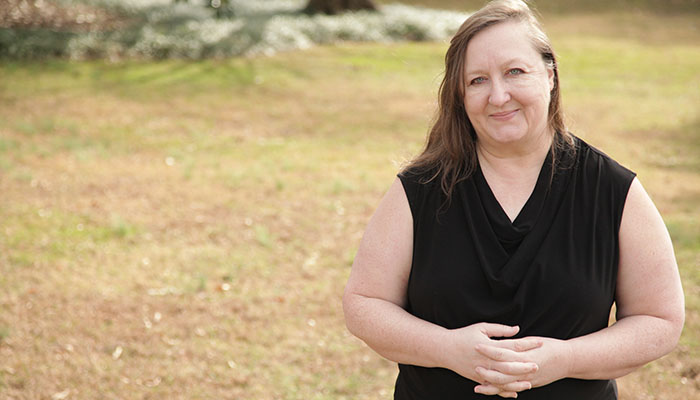WATCH VIDEO
Team Research Forum: From Gene Sequencing to Functional Knowledge
From Gene Sequencing to Functional Knowledge: Empowering Research with the Mouse Biology Program
Join the Office of Research on Friday, November 1st at 10:30am for a showcase of UC Davis Mouse Biology Program (MBP) contributions to scientific research by providing the campus research community with essential resources for a wide range of projects of all scales. Scientists who have used and interacted with MBP will present their research and share how they have used MBP’s expertise, resources, capabilities. Attendees will hear how your colleagues have benefited from MBP’s commitment to advancing research by providing mouse models of human disease, in vivo functional phenotyping procedures, and specialized testing and analytical resources.
Watch Video
“Mouse Biology Program…An extension of your research laboratory”
 Kent Lloyd
Kent Lloyd
Distinguished Professor, Department of Surgery
Director, UC Davis Mouse Biology Program
Dr. Lloyd’s research focuses on understanding the genetic basis for both rare and common diseases. He studies gene function in health and disease using in vivo models created using multiple strategies, including gene targeting and genome editing.
“How the Mouse Biology Program advanced my research: generation and applications of Alox5 mutant mice”
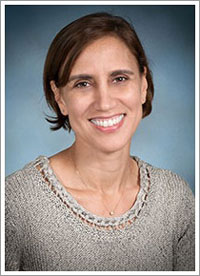 Athena Soulika
Athena Soulika
Associate Professor, Department of Dermatology
UC Davis School of Medicine
Dr Soulika’s research centers on the role of local immune responses in the healing process following tissue injury.
The detrimental effects of inflammatory injury in the central nervous system are evident in disorders such as Multiple Sclerosis and Acute Transverse Myelitis. After resolution of inflammation, residual but chronic activation of local immune responses in the central nervous system prolongs and heightens neuronal dysfunction and axonal degeneration, which may lead to permanent neurological disability. Dr Soulika’s research focuses on the delineation of mechanisms that rule uncontrolled immune responses that hinder repair and physiological function of the nervous system.
The lab is also interested in the characterization of immune responses initiated locally in the skin after burn injury. Dr Soulika studies the contribution of specialized immune cells located in the skin (like the epidermal T cells and Langerhans cells) in patients that after severe burn injury exhibit impaired healing. Her working hypothesis is that inactivation of these cells impedes wound healing and tissue reconstruction.
“The MMPCLive VIBRANT Program”
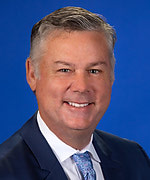 Sean Adams
Sean Adams
Vice Chair for Basic Research, Department of Surgery
Professor, Department of Surgery
Dr. Adams serves as the Scientific Director for the UC Davis Center for Alimentary and Metabolic Science (CAMS). The mission of the CAMS is to conduct research that spans from the molecule to the bedside, to expand fundamental knowledge that has relevance to improve health and thwart disease.
Dr. Adams is a research professor who works closely with clinical colleagues in Surgery and other departments to study the origins of metabolic disease, and to identify factors that promote metabolic health. He has special expertise in nutrition and metabolism.
Dr. Adams and his colleagues at the UC Davis Center for Alimentary and Metabolic Science research factors that regulate one’s metabolism and risk for metabolic diseases such as type 2 diabetes. Molecular links that impact metabolic health stem from dietary patterns, physical fitness and muscle physiology, and from the naturally-occurring bacteria in the gut (aka, the gut microbiome) that produce xenometabolites. Research in these areas is relevant to culinary medicine, diabetes prevention and treatment, and development of new therapeutics to prevent or treat metabolic disease.
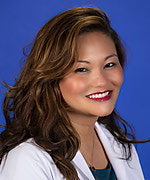 Geoanna Bautista
Geoanna Bautista
Assistant Professor
Fetal Care and Treatment Center
Neonatology
UC Davis Children’s Hospital
Dr. Bautista is a neonatologist with a special clinical interest in intestinal injury in the extreme premature population, including NEC and SIP, surgical diseases affecting the neonate including but not limited to short gut syndrome and related disorders, gastroschisis and intestinal atresias, as well as other complex congenital anomalies and syndromes.
Dr. Bautista’s research is focused on impaired gut motility and intestinal adaptation in the setting of prematurity and surgical diseases affecting the small and large intestine. She is particularly interested in the role of the mechanosensitive cation channel, Piezo1, in gut maturation and regulation of intestinal processes in specific gastrointestinal pathologies affecting the neonate. Dr. Bautista uses a basic/translational approach with conditional and inducible knock-out mouse models and human tissue correlates.
“Metabolic and Multiomic Effects of Diabetes and Sex (male/female) on Cognitive Function”
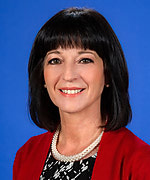 Amparo Villablanca
Amparo Villablanca
Frances Lazda Endowed Chair, Women’s Cardiovascular Medicine
Chair, UC Systemwide Group for Inclusive Leadership for Women
Director, Women’s Cardiovascular Medicine Program
Principal Investigator, UC Davis Center for Women’s Cardiovascular and Brain Health
Professor, Division of Cardiovascular Medicine
Dr. Villablanca is a physician-scientist and the Founding Director of the UC Davis Women’s Cardiovascular Medicine Program, the first woman’s heart program in the US. Her translational research program focuses on understanding sex differences in the molecular and cellular determinants of cardiovascular disease, including the vascular determinants of dementia. She is also a leader in community-based participatory research, and has developed and assessed efficacy of heart disease prevention models for improving heart disease outcomes in women who are at high-risk for cardiovascular disease.
Dr. Villablanca is also a mentor, champion, and scholar for women in science careers and has published extensively in the field and received numerous awards for her work. Her research has been funded by the National Institutes of Health (NIH), the U.S. Dpt of Health and Human Services, and private Foundations. Her work has been profiled by the NIH as a ‘woman scientist in action’ and by UC Davis Women in STEM. She is committed to helping women in academic health sciences advance to leadership positions and serves a chair of the UC system-wide group for inclusive leadership for women at UC Health.
Latest News & Events
Team Research Forum: From Gene Sequencing to Functional Knowledge




